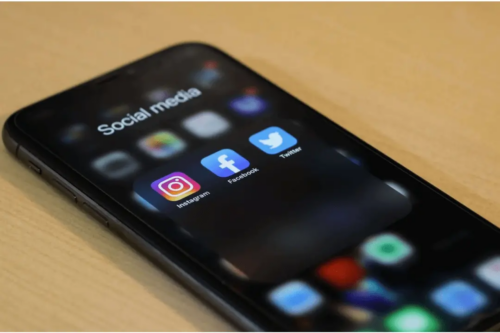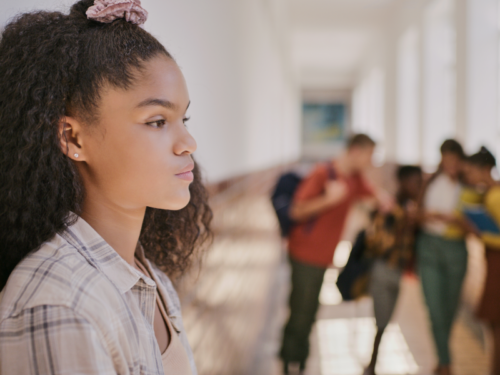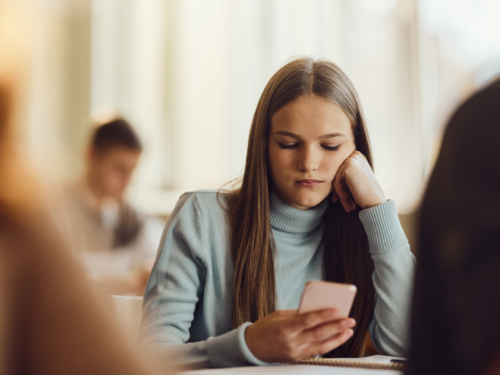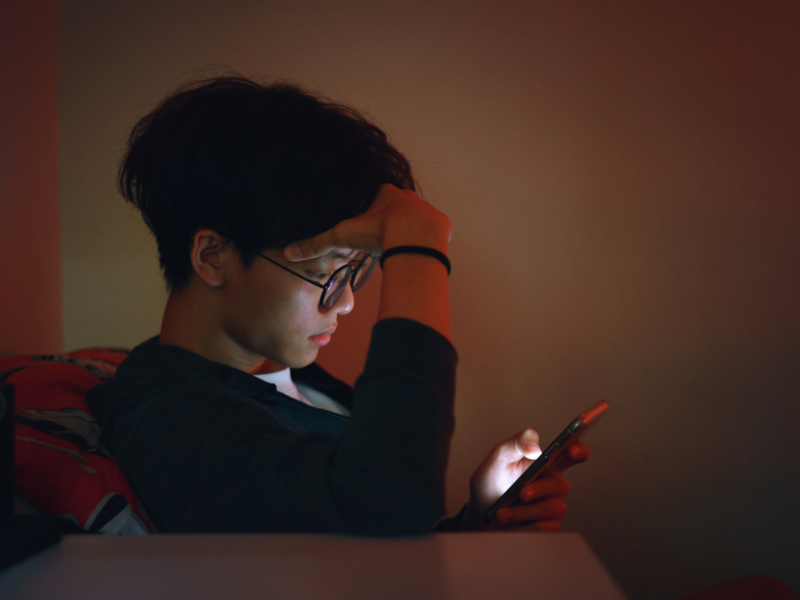
Every Adult Should Know How Social Media Impacts Youth Mental Health
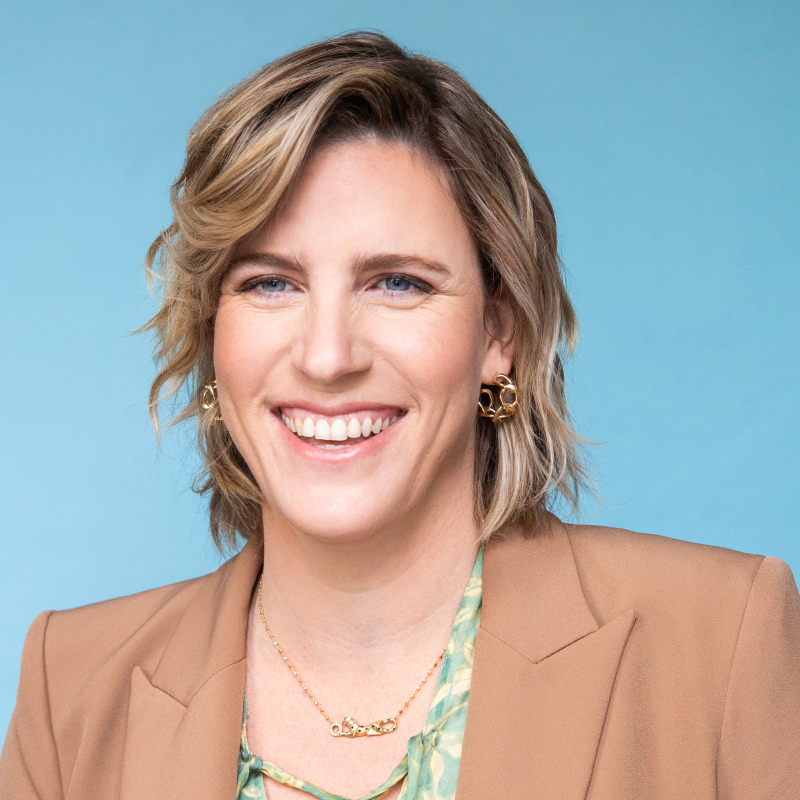
Written By: Dr. Caroline Fenkel, DSW, LCSW

Clinically Reviewed By: Dr. Don Gasparini
Updated: October 13, 2023
7 min.
I’m a youth mental health expert, and these are the common impacts of social media on youth mental health—the good and the bad.
Learn more about our Clinical Review Process
Children and teenagers are using social media more than ever, and all this time spent online has an undeniable impact on mental health. So, it’s understandable that as more and more young people face mental health crises, many point to social media as the culprit. At the same time, social media has been shown to serve as a tool of connection that can stave off loneliness and isolation—factors also at the forefront of the youth mental health crisis.
If all of this makes it challenging for your family to set norms about screen time and social media use, take a breath. Remember that you’re not alone, and there are ways for young people to use social media and maintain their well-being. Learn more about the impact of social media on youth mental health below—the good and the bad—and discuss how to cultivate healthy social media usage with the young people in your life.
Research: The impact of social media on youth mental health
Now more than ever, most children and teenagers cannot imagine their lives without social media. A recent Common Sense Media study shows that children as young as 8 years old (who, technically, shouldn’t even be able to access most platforms) are using social media apps 25% more than in 2019.
All this time spent on social media apps like TikTok, Instagram, Facebook, and Snapchat has prompted understandable concerns about youth mental health. A growing body of research has highlighted the ill effects of social media on youth mental health—so much so that the U.S. Surgeon General issued an advisory about the platforms’ potential harms earlier this year. Also, news reports over the past few years revealed that Facebook and Instagram executives are well aware of their platforms’ harmful effects on young people but have kept these findings under wraps.
On the other hand, social media can (at best) be a lifeline for young people—a source of solidarity, support, and resources, especially those with marginalized identities and fewer socioeconomic resources. Research shows that LGBTQIA+ young people can explore their identities and access resources through social media, enhancing their overall well-being. Similarly, social media has been shown to help young people of color and those with fewer socioeconomic resources politically engage and have their voices heard.
Below, I’ll dig a little further into the research and lay out some of the downsides and positives of social media for teens.
Join the Charlie Health Library
Get mental health updates, research, insights, and resources directly to your inbox.
You can unsubscribe anytime.
What are the downsides of social media for teens?
Here are some of the most well-researched downsides of social media for teens. Of course, not all young people on social media will experience these impacts, but they are among the most well-documented negative effects of the platforms.
Anxiety
As mentioned, the relationship between social media and youth mental health is a bit murky. For instance, some studies suggest that increased social media use leads to increased rates of depression among young people, while others found that social media interactions can help young people combat some of the symptoms of depression. The correlation between social media and anxiety is clearer, though. Substantial research has found that more screen time leads to more anxiety—findings that were particularly relevant during the height of the COVID-19 pandemic.
Addiction and distraction
Teens themselves have reported they feel addicted to social media, saying that there’s an intense separation anxiety when they’re away from their phones or computers for too long. This is no coincidence. Social media itself is designed to be addictive, leading young adults into a sometimes negative feedback loop of using social media to feel better only to overuse it and feel worse. Teens pulled into this loop may spend excessive time online, which can interfere with their daily routines, schoolwork, and sleep. One of the reasons teens are more susceptible to the addictive qualities of social media is developmental. The brain is still developing during your teenage years, leaving young people vulnerable to influences, including social media.
Negative self-esteem
Social media can promote unrealistic body images and lifestyles, contributing to low self-esteem and negative body image issues. An internal series of research findings at Meta (formerly Facebook) detailed how researchers have known for years that Instagram makes body image worse for one in three teenage girls. And yet, the number of influencers who peddle dangerous diet myths and other impossible beauty standards has exploded, creating (as one study put it) a disordered relationship of “dependency between influencers and their followers.” Critically, body image issues and negative self-esteem often co-occur with other mental health issues, including eating disorders, anxiety, depression, substance abuse, and suicidal thoughts.
Self-diagnosis
Many teenagers are turning to social media to diagnose their mental health problems. This can be risky because the information is often incorrect, studies show. Even though it may prove helpful at times, mental health content on platforms like TikTok and Instagram can spread misinformation, leading young people to believe they have mental health conditions they aren’t actually dealing with. In addition to being inaccurate, self-diagnosing can be doubly problematic, as it can delay a young person from meeting with a licensed mental health professional.
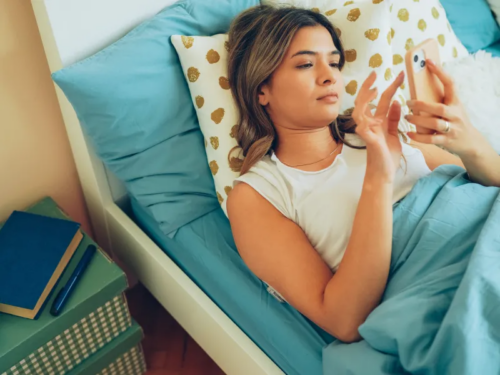
What are the positives of social media for teens?
Despite these downsides, there are some positives of social media use for teens. As mentioned, these outcomes are not universal, but they are commonly seen.
Social connectivity
Social media is at its best when it’s working as described: providing an outlet for social connection. Social media platforms help teens stay connected with friends and family, especially when they can’t meet in person (due to factors like distance or the pandemic). This social connection strengthens relationships and helps maintain social bonds—all factors that can benefit youth mental health. Also, as mentioned above, this opportunity for connection is especially beneficial for young people of marginalized communities, like LGBTQIA+ young people, who may otherwise not be able to receive identity-affirming social support.
Information and education
Teens can access a vast amount of information, educational content, and news on social media platforms, aiding in research and learning. Jacqueline Nesi, Ph.D., an assistant professor of psychology at Brown University studying youth technology use, noted these benefits in an American Psychological Association brief on this topic. “Social media provides a lot of opportunities for young people to discover new information, learn about current events, engage with issues, and have their voices heard,” she said.
Awareness and activism
Social media empowers young people to raise awareness about important social and political issues, enabling them to support causes they are passionate about and add their voices to the conversation in a way otherwise not possible. As mentioned, this is particularly true for marginalized communities. A recent study found that about half of young people polled—especially those who are Black and Latino—used social media for civic engagement in 2020.
Helping cultivate healthy social media use with youth in your life
Adequate boundaries largely differentiate healthy and unhealthy social media use. Caregivers can help maintain these boundaries and encourage healthy social media use among young with open communication.
Start by discussing social media's potential risks and benefits (as mentioned above) and establish a mutually agreed upon balance between screen time and offline activities. For instance, consider a no-phone policy during family dinners, the hour before bed, or during sports practice. Also, keep in mind that it’s important to model responsible social media use. Demonstrate respectful online interactions and adhere to boundaries in your own device usage.
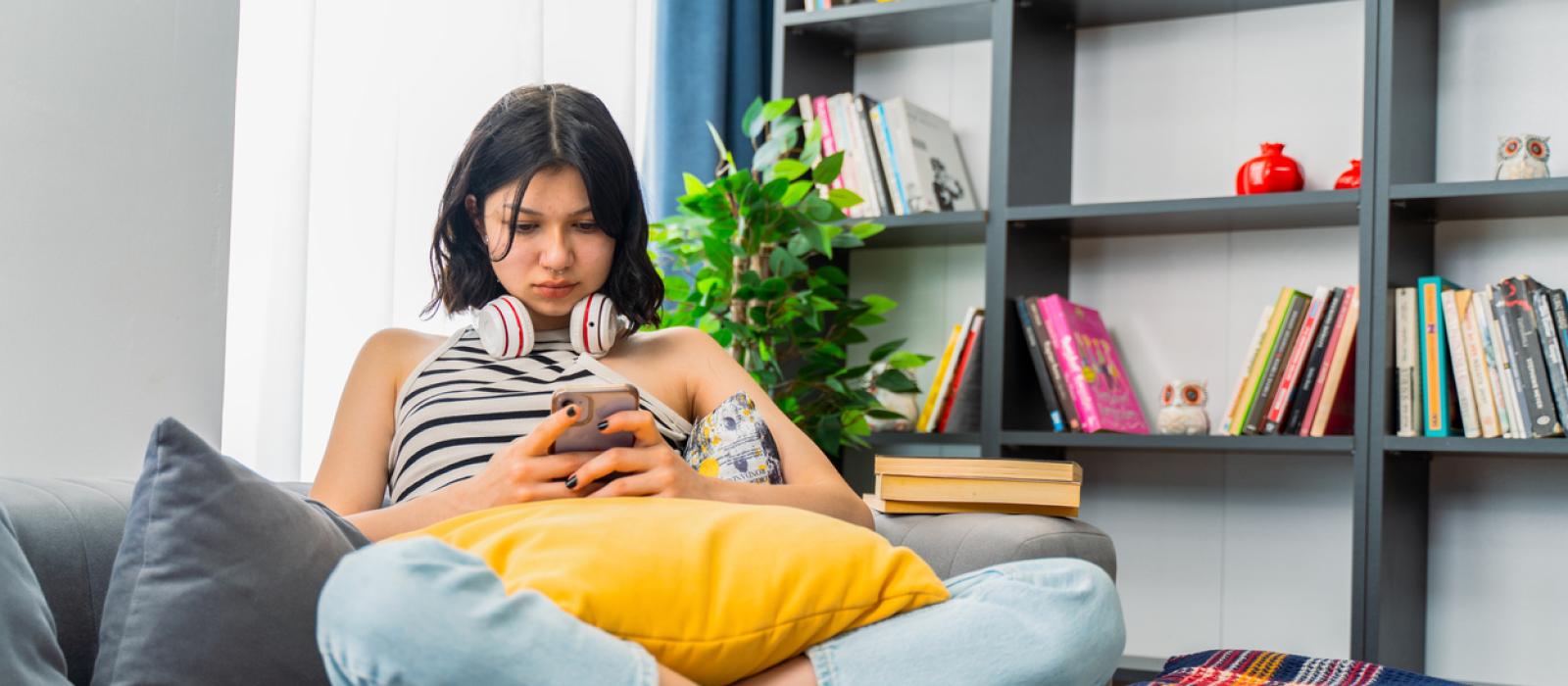
However, this approach may not work if the young person in your life exhibits signs of technology addiction or if social media is harming their mental health. In this case, it’s important to reach out for professional mental health support. Acknowledging that additional support is needed takes courage, but it’s the first step of the healing journey.
One metric to keep in mind when making this assessment is functionality. In short, if social media use impedes a young person’s ability to complete everyday tasks or makes them feel more depressed or anxious than usual, it’s probably time to take a break and reevaluate their relationship with social media. If this is the case, consider reviewing the following questions with the young person in your life:
- How much time per day is dedicated to social media?
- How are the decisions being made about your/their life influenced by social media?
- Have they been putting off responsibilities to be on social media?
- Why do they choose to engage with social media?
When used with proper boundaries, social media can absolutely provide a net benefit for those struggling with mental health. But it’s vitally important to enforce those boundaries, be it through parental guidance, self-reflection, or work with a therapist.
Youth mental health support at Charlie Health
If a young person in your life is suffering because of social media, Charlie Health is here to help.
Our virtual Intensive Outpatient Program (IOP) combines group sessions, family therapy, and individual therapy to support young people dealing with complex mental health concerns and their families. Our expert, licensed clinicians are here to support teens and young adults struggling with a range of mental health concerns—including those exacerbated by social media use.
Fill out this short form to get a free assessment today.
References
https://www.commonsensemedia.org/research/the-common-sense-census-media-use-by-tweens-and-teens-2021
https://www.wsj.com/articles/the-facebook-files-11631713039
https://journals.sagepub.com/doi/10.1177/2056305121988931
https://journals.sagepub.com/doi/10.1177/2167702617723376
https://www.sciencedirect.com/science/article/abs/pii/S0747563214006888?via%3Dihub
https://www.ncbi.nlm.nih.gov/pmc/articles/PMC10401371
https://about.fb.com/wp-content/uploads/2021/09/Instagram-Teen-Annotated-Research-Deck-1.pdf
https://bmcpublichealth.biomedcentral.com/articles/10.1186/s12889-019-7387-8
https://bmcpsychology.biomedcentral.com/articles/10.1186/s40359-023-01243-x
https://www.apa.org/monitor/2023/09/protecting-teens-on-social-media
https://circle.tufts.edu/latest-research/young-people-created-media-uplift-their-voices-2020
https://journals.sagepub.com/doi/full/10.1177/07067437221082854

